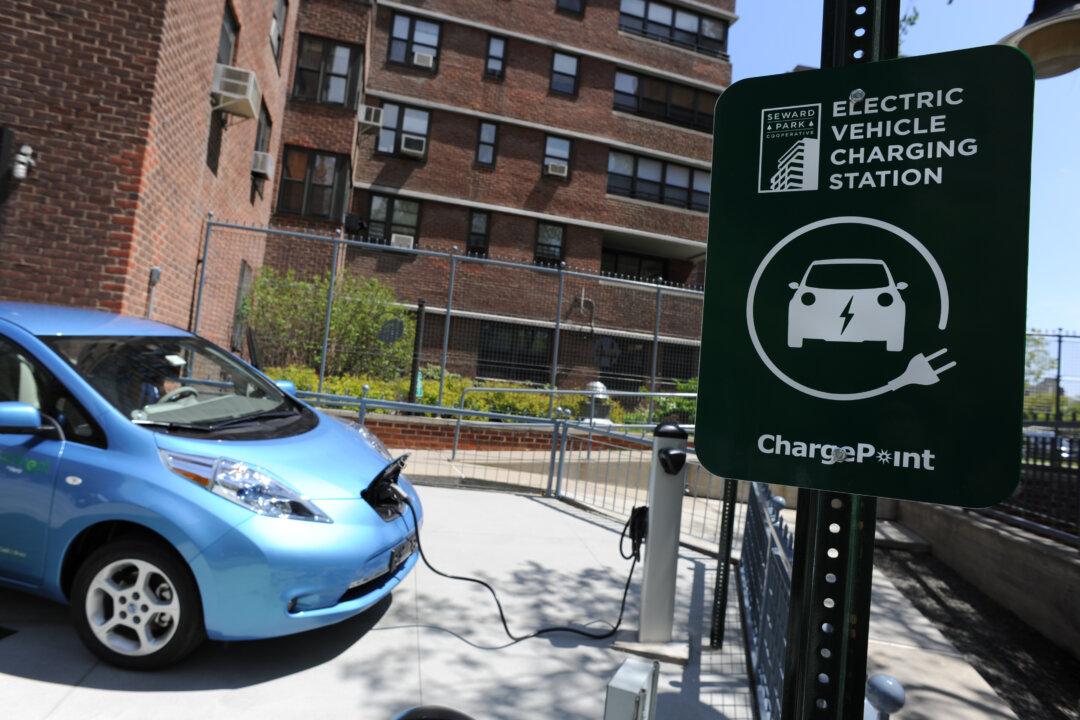TEANECK, N.J.—Ask Art Vatsky about his electric car, and he'll tell you about his smooth, quiet commute from Teaneck to the Bronx, the $100 he saves each month bypassing the gas pumps and everything about its engine.
But he'll also tell you about its drawbacks: the limited range and lack of charging stations in New Jersey and elsewhere.
“For day-to-day use, it’s great, but I’m not using it for a family vacation,” said Vatsky, who leases the Honda Fit EV and teaches the next generation of mechanics how to repair these cars at Bronx Community College.
As millions of New Jerseyans hit the highway this holiday season, few will be doing so in an electric car.
Despite a break on sales tax and a recent push to install more charging stations on two of the state’s busiest highways, a new report showed New Jersey lags behind on electric vehicles, compared with some other Northeast states.
There are about 2,500 electric vehicles in New Jersey among the 5.7 million registered vehicles in the state. New Jersey trails New York, which has 12,000, Massachusetts, with 5,500, Maryland, with 5,000 and Connecticut, 3,000, according to a study by the environmental advocacy groups Conservation Law Foundation, the Sierra Club and Acadia Center.
Even as electric car sales dropped this year with gas prices plummeting, many auto manufacturers are betting on electric cars and hybrids, investing billions in technology and battery storage. Audi recently announced it expects 25 percent of its sales in North America to be electric by 2025, while Ford said this month it is investing $4.5 billion to add 13 electric vehicles to its product line by the end of the decade.
Announcements like that draw praise from clean-air advocates, who say the electric car is key to curbing smog and lowering asthma rates and other respiratory illnesses.
While New Jersey is part of a multistate effort to promote lower emissions, Governor Chris Christie’s administration hasn’t signed on to an eight-state pact that would provide more infrastructure and incentives toward getting 3.3 million electric vehicles on the road by 2025. And a number of pieces of legislation in recent years, from tax credits for owners of electric cars to requiring charging stations at shopping centers, have died in Trenton.
Electric-car owners often charge up at home by either plugging into an outlet where it could take up to 24 hours for a full charge or by installing faster Level 2 charging equipment that costs $400 to $700.
But key to expansion is building more charging stations. Although owners of a $70,000 Tesla Model S can drive more than 200 miles on a full charge, most electric vehicles have a range of 80 to 100 miles. In contrast, a small gasoline-only car, like a Mazda 3, has a 450-mile range, while hybrids like a Honda Civic model can get 600 miles.





